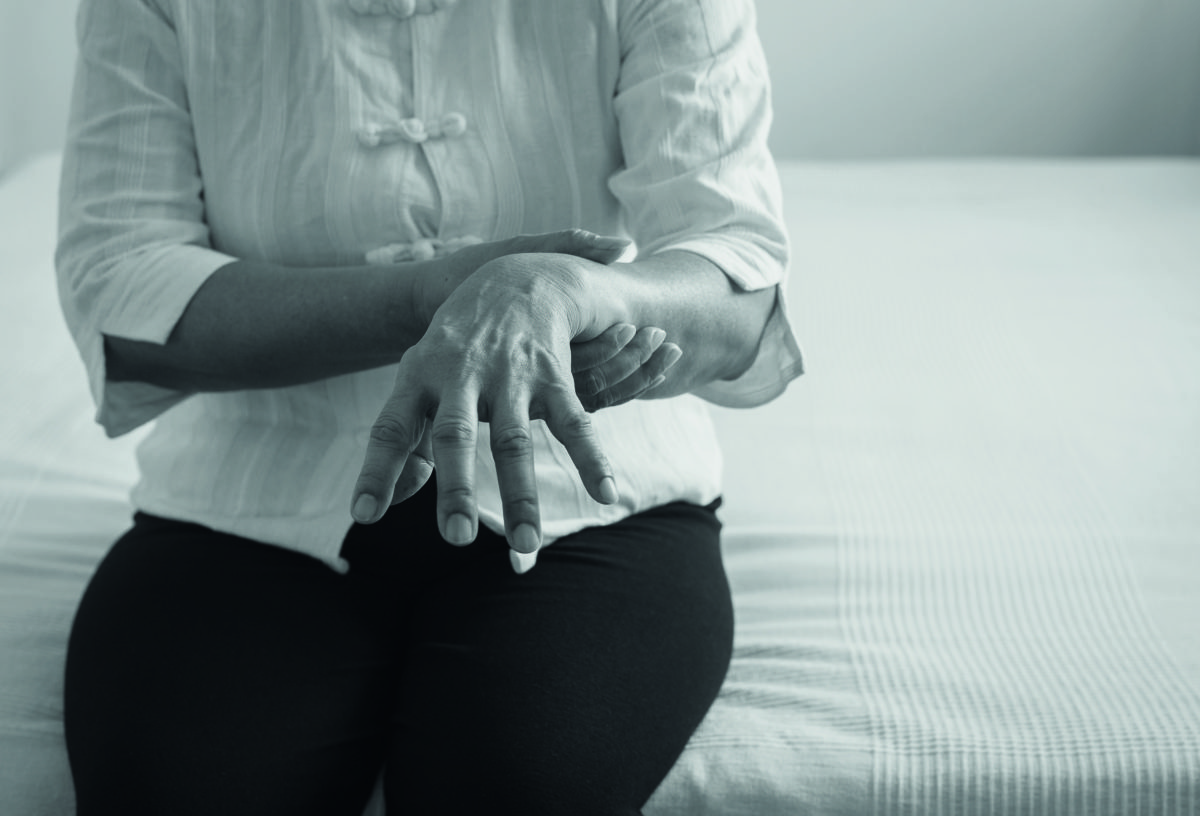Adjusting to a Parkinson’s diagnosis can be a perplexing and overwhelming process, so it’s important to make the individual feel as supported as possible. Colin Cheesman shares his story – helping us to channel the patient’s journey, and the factors which have been impactful in managing his condition.
‘I’m sorry to spoil your evening, but you have Parkinson’s.’ The consultant neurologist carried on writing his notes, and I sat in silence for what seemed like an age, but was probably only a few seconds. I had understood the words, but could not grasp their relevance to me. Parkinson’s? Surely, that was something that affected elderly people. I was a physically fit and apparently healthy 54-year-old.
‘You are in the very early stages and it is unlikely to affect you significantly for some time,’ continued the consultant. As he carried on speaking, it began to sink in that he really did mean me. He went on, ‘At this stage it is not necessary to begin treatment. I suggest that we review the position in six months. In the meantime, just get on with your life.’
I made my way home to my wife. We had both thought that my troublesome aches and the mild loss of co-ordination were something trivial, so she had not come with me to the appointment. We sat and looked at each other. Neither of us had had the faintest idea of the potential diagnosis nor did we have any knowledge of Parkinson’s.
My life is dramatically different from the future I had expected. At the age of 54, I was the head of a large public body – at the top of my career as it were. Less than a year later, my wife and I had both retired and were starting to build a different life in the knowledge that I had Parkinson’s.
It’s 18 years on since I had that diagnosis and l am now into my 70s. I still regard myself as basically fit and healthy. Medication has largely kept pace with the progression of the condition, but that is only half of the story.
Although drugs can help manage the symptoms of Parkinson’s, they can’t halt the inevitable progression of the condition. Even with good medication, life is a daily battle to keep the progression at bay. I use the word ‘battle’ deliberately. Like many people with Parkinson’s, I find it helps to personalise the condition and focus on Parkinson’s as a virtual enemy which has invaded my body and wants to control more and more of it each day.
Parkinson’s is progressive and, currently, incurable. Does that mean that there is nothing more that can be done other than to let Parkinson’s take its course?
I passionately believe that there is more that we can do, based on the experience of managing my own condition and of working within the world of Parkinson’s for over 15 years.
Self-Belief
A positive attitude and a strong desire to maintain one’s independence are critical. It can be very easy to be shocked and distressed by the diagnosis. Without support at this critical time some people with Parkinson’s may sink into depression from which it is hard, and for some people, impossible, to recover.
Determination
Taking on the fight against Parkinson’s requires a streak of determination. This might be categorised as pig-headedness, but it shows itself in a refusal to be constrained by the limits that Parkinson’s wants to place on the individual’s capacity to act.
Fitness
It’s generally acknowledged that the single most important factor in modifying or slowing the progression of Parkinson’s is regular exercise structured to the individual’s needs.
Learning and Awareness
Every person with Parkinson’s is different. They will have a unique portfolio of symptoms, will have a different rate of progression, and will respond differently to treatments. This means that the selection of medication is a matter for careful discussion with the consultant. The patient can play his or her part by becoming sensitive to the impact and side-effects of the medication, how the condition is changing, or whether the drugs are wearing off. The treatment programme is a collaboration between the consultant and the aware patient.
Therapeutic Assistance
It’s fair to say that until recently, very little attention or priority was given to the therapeutic aspects of an individual’s treatment compared with the medical. This is changing as we now realise that we have been missing a trick by not being more rigorous in emphasising the importance of having good access to physio and occupational therapies as well as less formal exercise classes such as yoga and Pilates. We should be aiming for early assessment and review of the appropriate therapeutic programme for the newly-diagnosed.
My message for you to give to those who receive a diagnosis of Parkinson’s is to be positive and plan for the future. Life will be different – but not necessarily worse.
About the Author
Colin was a solicitor by profession. He spent his career entirely in local government. He was diagnosed with Parkinson’s in 2001. Colin was chief executive of a major local authority at the time of his retirement in 2002. As a volunteer he became involved with Parkinson’s UK, where he was a trustee for nine years. He has a number of other voluntary sector interests and is currently a public governor of the Walton Centre NHS Foundation Trust.








